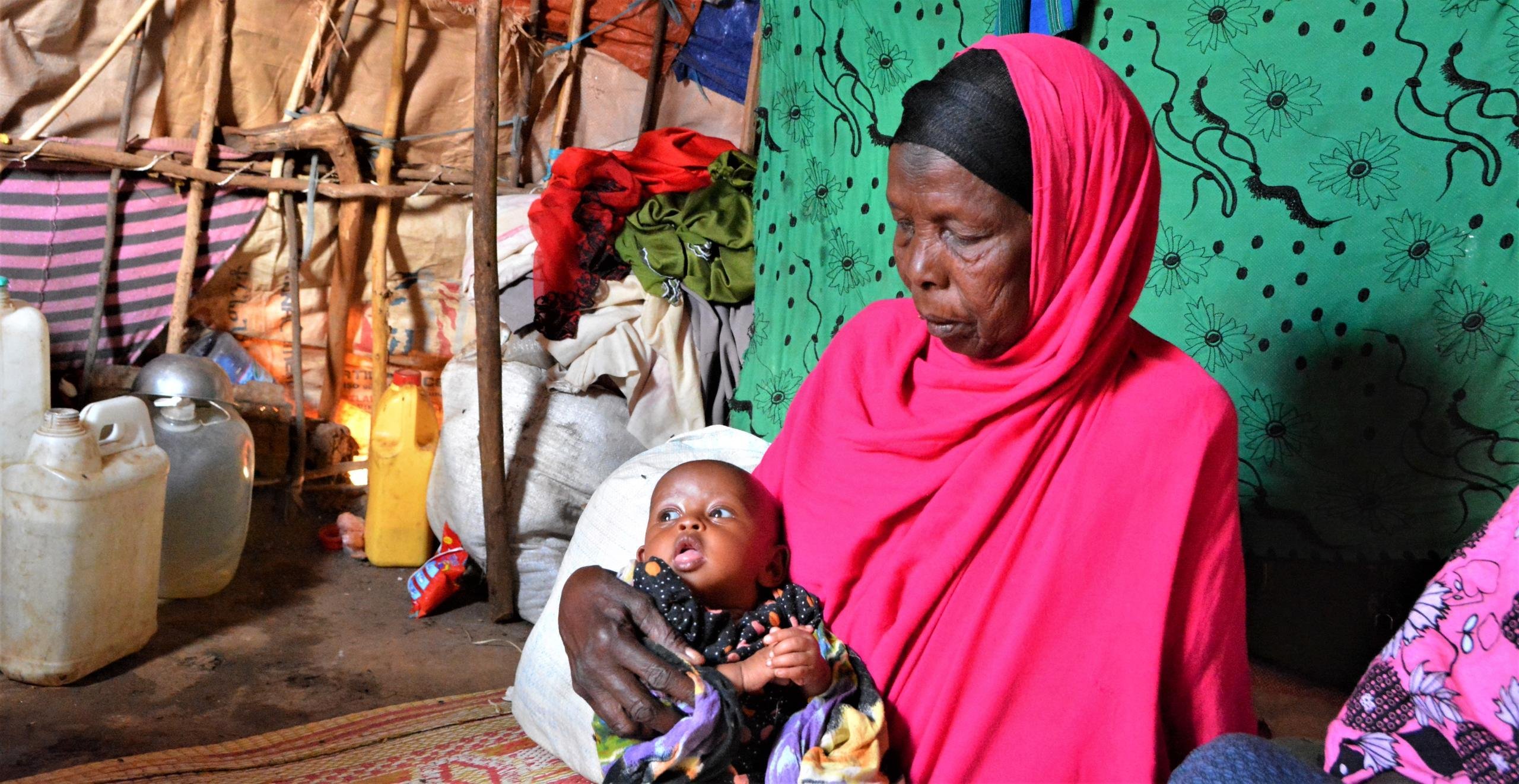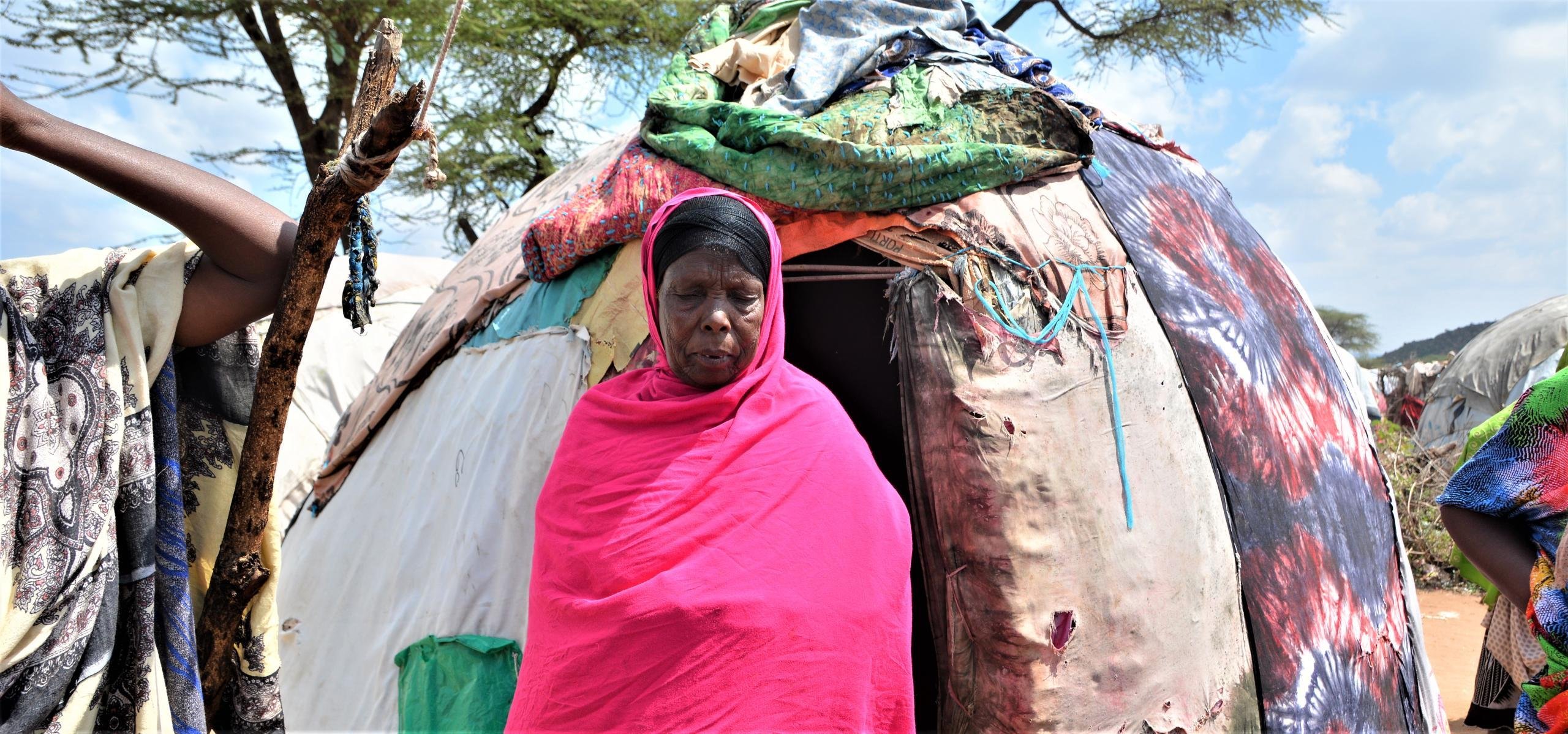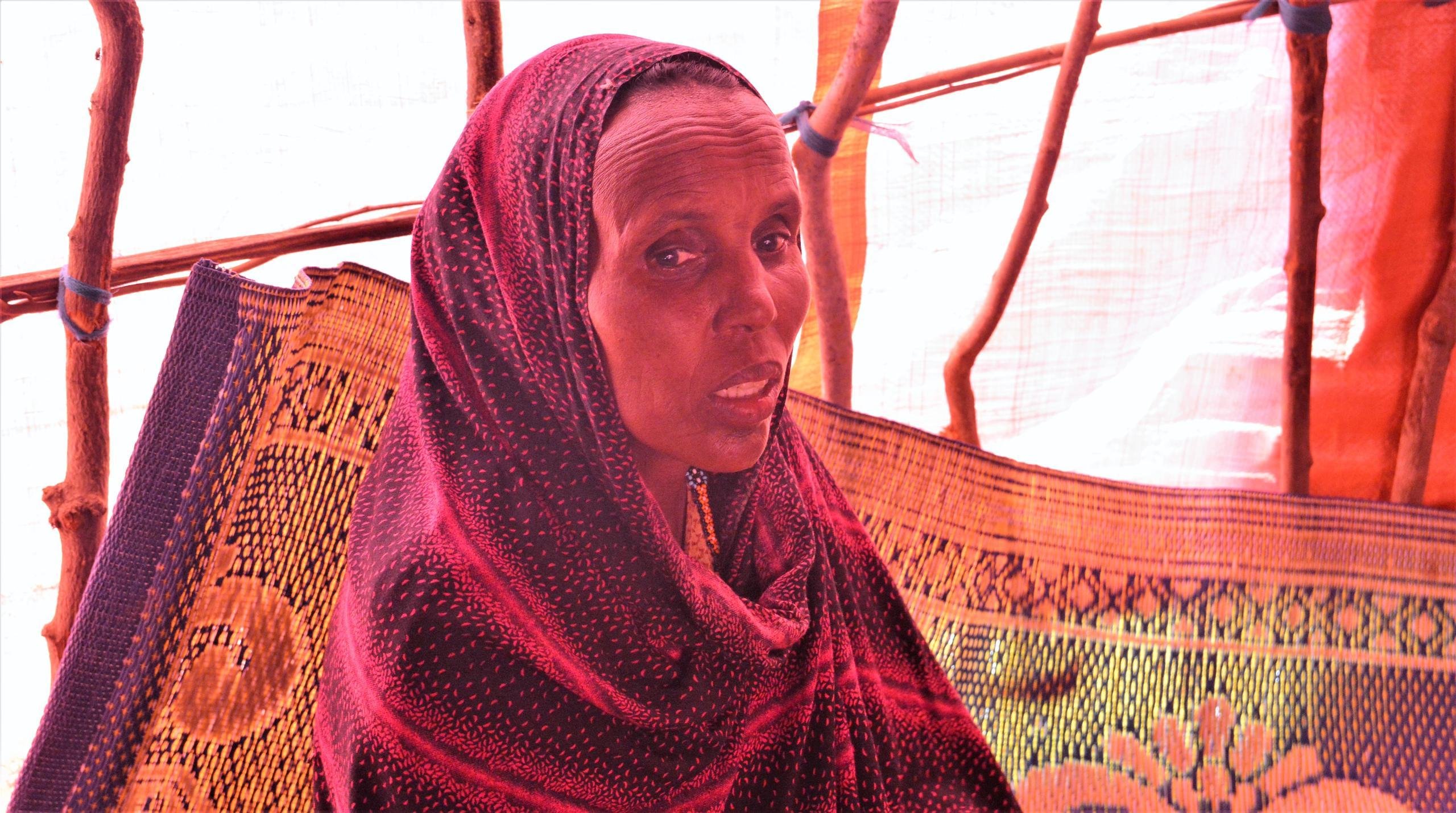
"I have nothing left," says the 75-year-old grandmother. She is sitting in a small tent in a displacement camp, with her daughter and two-month-old grandson.
Around one million people have been displaced following inter-communal disputes that erupted between the ethnic Oromo and Somali communities in Ethiopia in 2016.
Maymuna was born and raised in the city of Babile in Oromia, where she also got married and gave birth to her eight children. For 74 years, Babile was her only home.
I have nothing left.Maymuna Ahmed
When violence broke out, Somali ethnics, among them Maymuna and her family, were forced to leave Oromia city. Their houses were looted and burned to the ground by Oromo youth groups in the area.
Starting over in a displacement camp
"This area used to be a dense forest, until the government cleared it a year ago when we arrived. They built shelter for us," Maymuna explains.

The Koloji II camp was established one year and three months ago. It is currently hosting around 7,475 families – nearly 37,000 people. The residents have fled from several different parts of the Oromia region to seek safety in the bordering Somali region.
She was like a second mother to me. She was inside our house when they torched it.Raha Ahmed, a 40-year-old mother of eight
Some of the families walked for days to reach the camp. Others were brought to safety by buses that were sent by the authorities in the Somali region. More people are still arriving every day. In the past two months, about 2,500 new people have arrived in the camp.
Read also: They burned down our house
The Ethiopian government and humanitarian agencies have been responding to the needs of the people in the displacement camp, but people are still in desperate need of proper sanitation and health facilities, food, education and shelter.

We are currently providing people with emergency cash so that they can buy what they need the most. With funding from Swedish International Development Cooperation Agency (SIDA) and Directorate-General for European Civil Protection and Humanitarian Aid Operations (ECHO), we provide every person in the camp with approximately 50 USD every month.
This has helped people buy food, clothing, mats and plastic materials for their shelters.
Too scared to return home
"So many people were killed. My father’s second wife – she was like a second mother to me – was inside our house when they torched it," says another resident of the camp, Raha Ahmed, a 40-year-old mother of eight children.

The displaced people in Koloji II used to be farmers, merchants and pastoralists, with assets and homes. Most of them have lost everything. Although many tell us that they wish to return home to their normal lives one day, most residents are, for now, too scared to go back. For many, returning home means risking their lives. But life in the camp is also difficult:
"We used to be autonomous. We had jobs. Now we are dependent on humanitarian aid."

